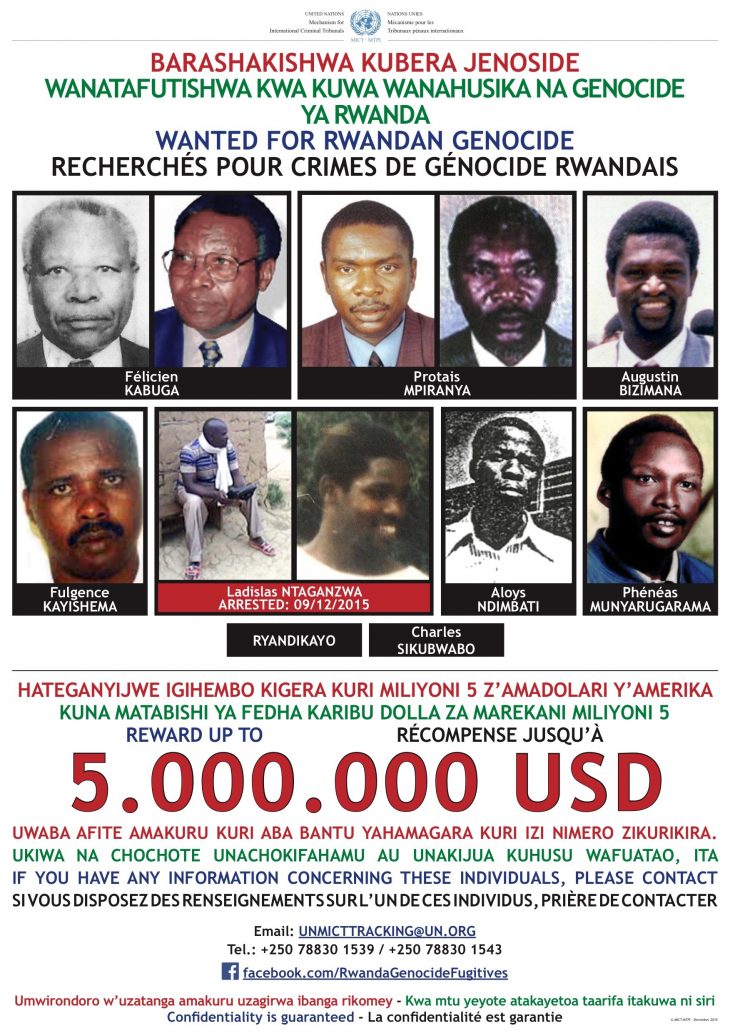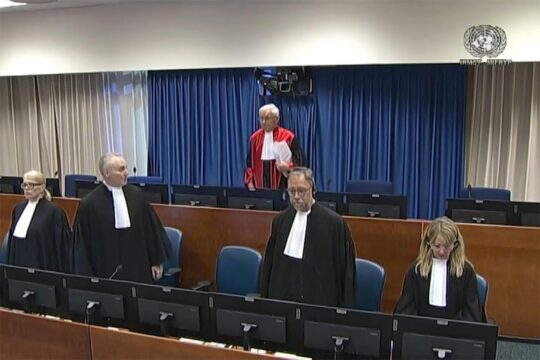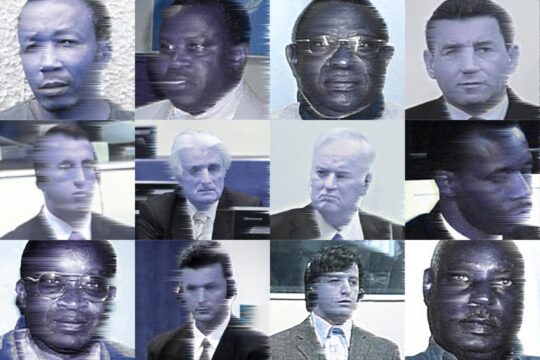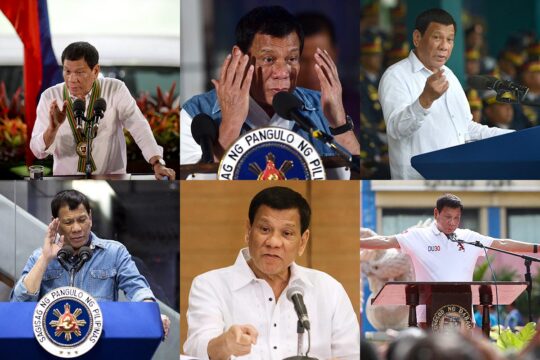The case of former Rwandan mayor and genocide suspect Ladislas Ntaganzwa, recently arrested in the Democratic Republic of Congo (DRC), is turning into a headache. The UN’s Mechanism for International Criminal Tribunals (MICT), which has taken over residual functions of the International Criminal Tribunal for Rwanda (ICTR), has asked for his rapid extradition to Rwanda. But the procedure is likely to drag on. In exchange for handing over the former mayor of Nyakizu (southern Rwanda), accused of murder and rape during the 1994 genocide, Kinshasa wants Kigali to hand over in exchange a Congolese citizen who is also under an arrest warrant.
Ntaganzwa, 50, was arrested in early December in North Kivu, a province in the eastern DRC, after army offensives against Rwandan FDLR rebels there. He is currently being questioned in Kinshasa and says he was just a “nurse” for the FDLR, which was founded by members of the former Rwandan army (FAR) that fled the advancing troops of current Rwandan President Paul Kagame, who seized power as he ended the genocide.
Congolese Justice Minister Alexis Thambwe Mwamba refuses to name the Congolese citizen sought in exchange for Ntaganzwa, but outstanding arrest warrants target leaders of two mainly Congolese Tutsi ex-rebel movements supported by Rwanda in the east of the country, namely the CNDP and M23.
A senior Congolese army official told JusticeInfo.net that Kinshasa is negotiating for Laurent Nkunda, former CNDP head, who has been under “house arrest” in Kigali since 2009. Nkunda, suspected of piloting from a distance the May 2012 creation of M23, is, according to this Congolese army official, “at the root of all the suffering that hit the DRC after 2003”. That year marked the end of the second DRC war (1998-2003), which brought the country to its knees. “The DRC needs to extract dividends from this extradition [of Ladislas Ntaganzwa],” the Congolese army man told JI.net. “It cannot be done for free!”
Perhaps Kinshasa is also trying to get its revenge. Rwanda announced in 2009 that it would extradite Laurent Nkunda and Justice Minister Alexis Thambwe Mwamba went there to close the deal. But several months later, Kigali said it could not extradite Nkunda to a country that still has the death penalty on its statute book, even if death sentences have been commuted to life imprisonment and no-one has been executed in the DRC since a moratorium in 2003.
International arrest warrant
Kinshasa hopes to use Ladislas Ntaganzwa as a means of pressure and could cite the Addis Ababa agreement of February 2013, under which countries of the region pledged to “facilitate the administration of justice” and “neither host nor provide protection of any sort” to suspected perpetrators of serious crimes. But Ladislas Ntaganzwa is under an international criminal justice arrest warrant (issued by the ICTR) and the DRC has no choice but to extradite him, Rwandan Justice Minister Johnston Busingye told Reuters news agency.
In the meantime the Accused, whose name does not appear in the FDLR’s military organigram, is still under interrogation, without a lawyer by his side.
“We are not yet at that stage,” says the Congolese army official. “The case is still under investigation by the military security services. He is being well treated in detention and looked after on every level.” He says the interrogation aims notably to gather more information about the FDLR, which is killing, raping, looting and recruiting child soldiers. This could, according to several reports, help Congolese army officers fight armed groups and mineral trafficking.
In early 2015, the Congolese army and UN Mission in the DRC (Monusco) were supposed to be fighting them together, but differences between them stopped the process, and Kinshasa went it alone to launch assaults which, it claims, have considerably weakened the rebels. In November, new attacks were launched and Ladislas Ntaganzwa was finally captured in Rutshuru (southeast of North Kivu province). Officially he was taken by the army. A UN official was more vague, telling JusticeInfo.net that Ntaganzwa was arrested by “national authorities” and that Monusco transferred him by helicopter to Goma, the capital of North Kivu.
On the other hand, the Congolese army official, police and civil society sources say it was elements of the FDLR that handed him over to Congolese police. The FDLR – whose leaders say they want to give up armed struggle and engage dialogue with Kigali, which refuses categorically to do so – is said to have thus given a sign of goodwill to the international community. FDLR spokesperson La Forge Fils Bazeye denies all links with Ladislas Ntaganzwa. “It is false, totally false,” he said in an interview with JusticeInfo.net. “It is just speculation. The army claim to have arrested him but up to now we do not know how he was arrested or who ordered it.”
Other genocide suspects still on the run
Eight fugitives wanted by the MICT are still on the run and, as for Ladislas Ntaganzwa, there is a five million dollar reward out for information leading to their arrest. So where are they? It is difficult to know for certain. The ICTR always claimed before it closed in December that they were hiding in the DRC.
La Forge Fils Bazeye says he doesn’t even know some of them. But he says that according to his information Félicien Kabuga, the most notorious of the fugitives, has “never” set foot on Congolese soil, and that he does not know where Kabuga is. The ICTR Prosecutor’s office has often said that Kabuga, presented as the financier of the Rwandan genocide, was living mostly in Kenya. As for former Defence Minister Augustin Bizimana, he is said, according to the FDLR spokesperson, to have died in Congo- Brazzaville. La Forge Fils Bazeye says Major Protais Mpiranya, who headed Juvénal Habyarimana’s presidential guard, died in Zimbabwe, while Lieutenant-Colonel Phénéas Munyarugarama “probably” died in the “western DRC”. The ICTR has always said it has no proof of death of any of these accused persons.






